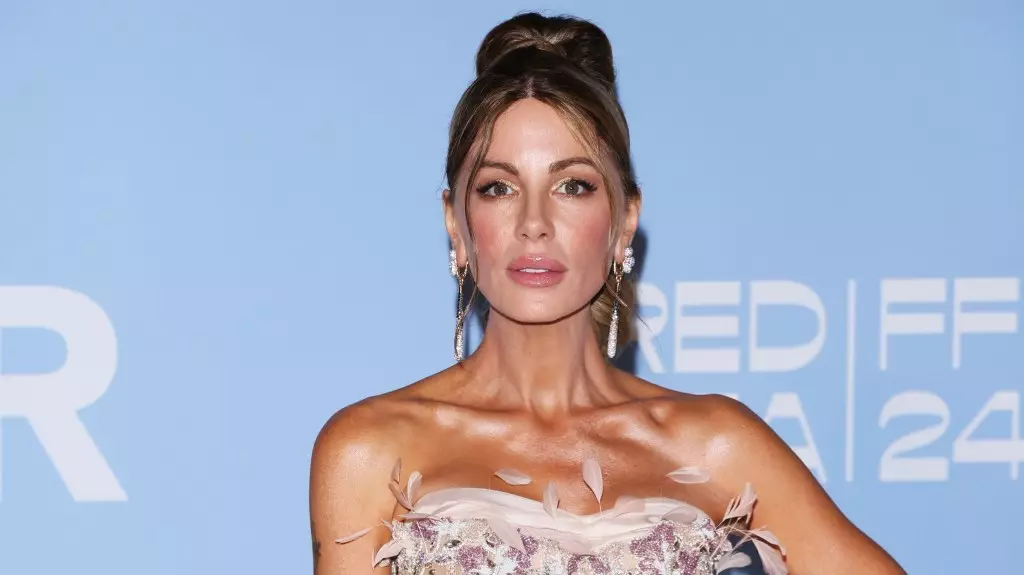In a recent exposé through Instagram, actress Kate Beckinsale emerged as a powerful voice against the pervasive culture of sexism and harassment in Hollywood. With her revealing video testament, she draws attention not only to her own harrowing experiences but also reflects the insidious nature of systemic misogyny that often stifles women’s voices within the entertainment industry. The backdrop of her statements was a recent scandal involving Blake Lively and Justin Baldoni, which seems to have catalyzed a much-needed conversation about the ongoing challenges women face in movie-making circles.
Beckinsale’s emotional unveiling of her past experiences, which include being subjected to objectification, ridicule, and even harassment, serves as a moment of critical introspection for both industry insiders and audiences alike. The actress stresses that her personal accounts are not isolated incidents but appear to be symptomatic of a much larger, entrenched culture. This is an essential point that goes beyond the surface of individual stories to contextualize a broader conversation about gender dynamics in Hollywood.
As Beckinsale illustrated in her video, the machinery that swiftly acts to silence women who dare to raise their voices against inappropriate behavior is deeply rooted in Hollywood. Her mention of being dismissed by female colleagues, particularly in moments of vulnerability, is alarming and indicates how women themselves can perpetuate a cycle of silence. Beckinsale’s shocking admission of having called out a male co-star for his on-set drunk behavior, only to be met with derision—being labeled a “stupid bitch”—demonstrates the desperate need for women to unite against toxic behavior instead of turning on one another.
Although this backlash is disheartening, it’s not uncommon in male-dominated industries. Beckinsale’s decision to speak out amid the Lively-Baldoni controversy exemplifies a moment where the long-standing tradition of “keeping quiet” is losing its grip, suggesting that the tide may be turning, however slowly.
The toll that Hollywood’s beauty standards and workplace dynamics take on actresses is troublingly detrimental to their physical and mental well-being. Beckinsale recounted how she was pushed into strict diet and exercise regimes to maintain an unrealistic beauty standard, resulting in the loss of her menstrual cycle. This admission raises crucial questions about how the industry defines desirability and worth and the damaging repercussions of such metrics.
Moreover, the actress highlights the alarming experiences of being placed in unsafe fight situations that could lead to genuine physical harm. Such revelations are particularly unsettling, as they tug at the very foundation of trust that is supposed to exist between professionals on set. The implications of having male counterparts who derive “a thrill” from putting women in harm’s way are ghastly and underscore the urgent need for reforms at every level of production.
Perhaps one of the most harrowing aspects of Beckinsale’s narrative is her reflection on being gaslit and ostracized for raising valid concerns about her treatment. The normalization of dismissing women’s cries for help and projecting blame onto them instead serves to reinforce a culture of fear. This gaslighting leads to dire consequences where women feel isolated and silenced, even as they endure mental anguish and physical threats.
Beckinsale’s recounting of how even a lead actress dismissed her pleas for assistance underscores the multi-layered challenges women face. The entrenched culture of receiving no support from peers—often the very individuals who one hopes will advocate for change—creates a bleak environment for those trying to navigate a world marred by misogyny.
In closing, Kate Beckinsale’s candid video shines a light on the urgent need for a cultural shift in Hollywood, emphasizing that many women continue to suffer in silence despite the industry’s superficial attempts at reform. Her experiences and observations serve both as a reminder and a call to action, pushing us to confront the uncomfortable realities that perpetuate abuse and inequity. If Hollywood is to genuinely move forward, it must reckon with the voices and stories of countless women who have waited far too long for their narratives to be heard and validated.

